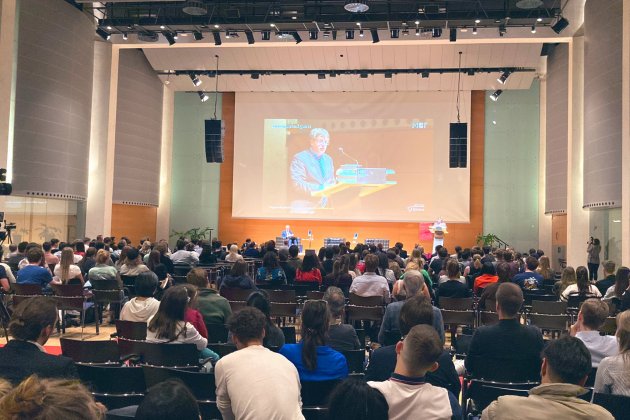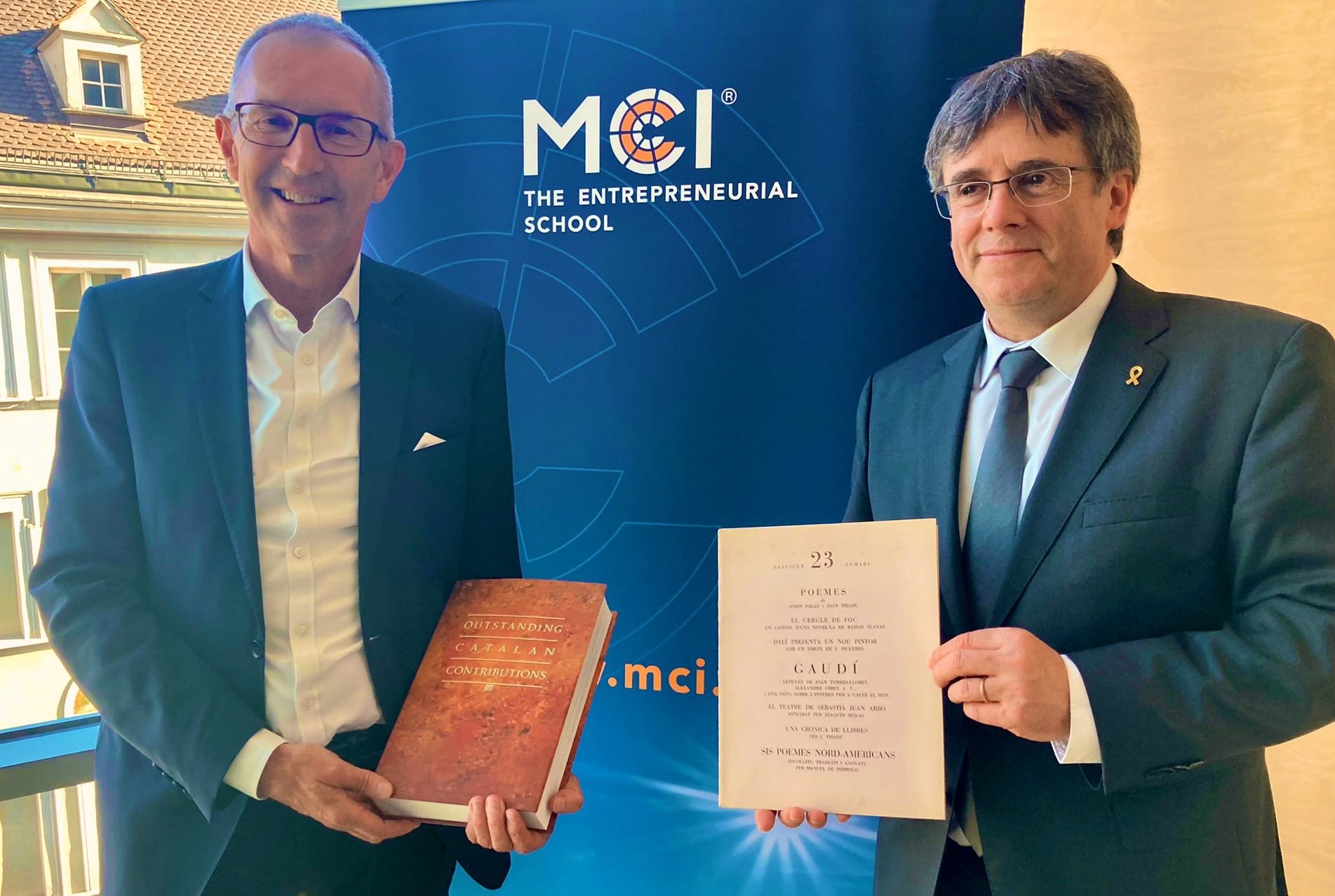Europeans continue to show great interest in the Catalan independence issue. Today, Carles Puigdemont had the opportunity to explain the independence movement to a large audience in the heart of Europe, and he took full advantage of it. The Catalan president in exile was invited to a conference in Austria by the MCI, the Management Center Innsbruck, a prestigious business school in the country. Under the title 'Freedom and Democracy in Europe', the initiative was highly anticipated by students and teachers: some 300 people turned up to hear Puigdemont, whom the event programme described as the leader of the independence movement, member of the European Parliament and distinguished guest. On this stage, the politician spoke about Catalonia's will to assert its sovereignty and explained the experience of the independence process over the last decade. He has focused much of his speech and answers to the many questions he received on the threats to democracy in Europe. And a clear example of this is, precisely, CatalanGate which exploded two weeks ago.
The former president referred to the massive case of espionage that has affected about sixty people linked to the independence movement, detailing its characteristics: a scandal revealed by the American weekly The New Yorker and thanks to an investigation by the Citizen Lab. He recalled that this was the largest case of cyberespionage in Europe, and that all indications were that Spain was behind it. But he also shared his low expectations that the names of those behind the operation will come out. "We have no confidence in Spain to clarify it. If it depends on the Spanish government, it will not be possible to clarify anything," he warned. However, there are reasons to be optimistic, he said: as the independence movement stated last week, it will bring the Catalangate affair to many parts of Europe. "There is an opportunity, because we will lodge lawsuits in five European jurisdictions, beyond Spain: in France, Belgium, Germany, Switzerland and Luxembourg. We will see if thanks to European justice we find those responsible for the violations of rights."

"Brave with Orbán and silent with Spain"
Puigdemont went on to point out a serious contradiction in the behaviour in the highest spheres of the European Union: why is it that there is a different reaction to the Spanish case compared to those of other countries on the continent? He criticised the existence of a "double standard" within the Union: "Why are they so brave with Orbán, but on the other hand remain silent when they discover that Spain has been spying on Catalan dissidents?" In a similar vein, he also regretted that the EU had spoken out against the entry of Catalonia and Scotland into the community, while opening the door to other states. "It is strange that the European project rejects a country like Scotland, but wants to incorporate Kosovo. Or ourselves: could the European Union resist having a member like Catalonia, which is a positive contributor economically?"
In the same critical line against the European Union, the Catalan leader was not able to avoid referring to another recent controversial case. At the end of last year, a representative of the European Commission received a delegation from the anti-Catalan independence group Societat Civil Catalana, and did so breaching its code of conduct. This week, again, the EC vice-president met with three members of the far-right Vox party. On the other hand, the European body has refused to meet with independence movement representatives led by Carles Puigdemont, Clara Ponsatí and Toni Comín, a fact that is much criticized by independence supporters. The president himself called the European body out today. "They don't want to receive us. Didier Reyndes receives the Spanish far-right party, but not us, who won the elections in Catalonia."
His biggest mistake
Carles Puigdemont also spoke about the independence process and its evolution in recent years. He acknowledged, as he has done on other occasions, what he considers to be one of his biggest mistakes: "One of the most important was when I decided to suspend the declaration of independence to allow dialogue with Spain." He explained that he had received messages from the central government stating that it would open negotiations after the 1st October referendum. "But it was a lie. That taught us to never trust the Spanish promises." He also set out the contradictions of his current situation, in which he is free to move around the European Union, but risks ending up in prison if he enters Spain. "I could not continue my struggle if I were imprisoned," he warned, defending his condition as an exile. And this is precisely the expression he used to define himself: "The president elected by the Catalan Parliament is Pere Aragonès, but I am the president in exile."

